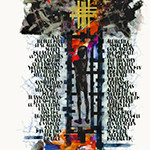 This week’s illumination is the haunting Suffering Servant from Isaiah. The image is inspired by the “Door of No Return” at Elmina Castle on the coast of Ghana, from which enslaved people were packed onto ships bound for America in the horrific Middle Passage of the transatlantic slave trade. The contemplative music in this 2-minute video is provided by Tyler Lawrence ’24.
This week’s illumination is the haunting Suffering Servant from Isaiah. The image is inspired by the “Door of No Return” at Elmina Castle on the coast of Ghana, from which enslaved people were packed onto ships bound for America in the horrific Middle Passage of the transatlantic slave trade. The contemplative music in this 2-minute video is provided by Tyler Lawrence ’24.
Academics
TLC Teaching Tip of the Week: How Not to Dread Reading Online Discussion Posts
 Even in the Before Times, requiring students to contribute to online discussions was part of the teaching toolkit for many of us. Now it’s nearly de rigueur across all our disciplines. If reading classroom forums feels tedious at times, here is one idea that might bring back the glow: rather than generic instructions such as “write an initial post and then respond to two of your classmates’ posts,” see if you can craft a prompt that forces students to make an interesting decision/choice and defend it, drawing upon course material. When they are responding to their peers, they could be invited to identify the most compelling aspect of the argument, or the juiciest word choice, or the course reading that doesn’t seem to have been considered in the formulation of an assertion. This might help shift the nature of students’ responses from simply “I agree/disagree” and parroting the readings to reactions that make for more gripping thinking and reading on everyone’s parts. It’s difficult to conceive of any subject matter that is truly morally or ethically neutral, so inviting students to take a stand on a thorny authentic problem—and defend it using actual facts—could flow naturally from just about any discipline. Initial prompts can be tweaked to fit your subject from stems such as “Given x reality, should Ted choose y or z path of action?” “Is Barney or Robin more likely to be successful in this scenario—how do you know?” “What song lyric from your Spotify list best captures the essence of this article—why do you say that?”
Even in the Before Times, requiring students to contribute to online discussions was part of the teaching toolkit for many of us. Now it’s nearly de rigueur across all our disciplines. If reading classroom forums feels tedious at times, here is one idea that might bring back the glow: rather than generic instructions such as “write an initial post and then respond to two of your classmates’ posts,” see if you can craft a prompt that forces students to make an interesting decision/choice and defend it, drawing upon course material. When they are responding to their peers, they could be invited to identify the most compelling aspect of the argument, or the juiciest word choice, or the course reading that doesn’t seem to have been considered in the formulation of an assertion. This might help shift the nature of students’ responses from simply “I agree/disagree” and parroting the readings to reactions that make for more gripping thinking and reading on everyone’s parts. It’s difficult to conceive of any subject matter that is truly morally or ethically neutral, so inviting students to take a stand on a thorny authentic problem—and defend it using actual facts—could flow naturally from just about any discipline. Initial prompts can be tweaked to fit your subject from stems such as “Given x reality, should Ted choose y or z path of action?” “Is Barney or Robin more likely to be successful in this scenario—how do you know?” “What song lyric from your Spotify list best captures the essence of this article—why do you say that?”
In addition to helping learners become conversant in the academic language of your discipline, an exercise such as this one helps answer the question “when am I ever going to use this new knowledge in real life?”
Excellence in Service Award Nominations Deadline Extended to Feb. 28
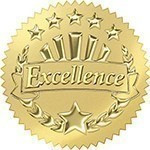 The Committee on Committees is still accepting faculty nominations for the 2020-2021 Excellence in Service Award. This award allows the University community to recognize and celebrate outstanding dedication and accomplishment in service. The committee will accept nominations until February 28, 2021.
The Committee on Committees is still accepting faculty nominations for the 2020-2021 Excellence in Service Award. This award allows the University community to recognize and celebrate outstanding dedication and accomplishment in service. The committee will accept nominations until February 28, 2021.
Nominations should be submitted to the Service Award Moodle site or may be emailed directly to meckler@up.edu. To nominate someone, simply submit a note that says, “I nominate <Name> for the 2000-2001 academic year Excellence in Service Award.” The Committee on Committees will reach out to nominees after the nomination period is over.
Submission of supporting materials by nominees will be due by March 31, 2021.
The service award seeks to identify and recognize faculty members that enhance the UP community, professional communities, and/or the world community through their service and leadership work with students, colleagues, and community members. Examples of excellence in service include:
- A commitment to the University of Portland community
- Participating on department, School, College, and/or University committees
- Leading new initiatives within the department, School, College, and/or University
- Advising student clubs and working with students on non-course-related activities
- Volunteering and working with non-UP community organizations
- Working with professional societies and organizations
Eligibility and selection criteria for the Excellence in Service award are established by the Academic Senate and can be found at the C on C Faculty Awards Criteria and Submission Information page accessed from the Academic Senate resources page.
The selection process includes a formal nomination, the submission of supporting materials by the nominees, final selection by the Committee on Committees, and announcement and presentation at the Faculty Gala.
Contact Mark Meckler at meckler@up.edu for more information.
SWE STEM Virtual Career Fair: Feb. 26
 The Society of Women Engineers (SWE) STEM Virtual Career Fair will be held on Handshake from 1 – 4 p.m. on Friday, February 26. The career fair is open to all students, though employers are specifically interested in connecting with the following STEM majors: biology, bio-chemistry, biomedical engineering (graduate level), chemistry, civil engineering, computer science, electrical engineering, environmental science, mathematics, mechanical engineering, physics, and operations & technology management.
The Society of Women Engineers (SWE) STEM Virtual Career Fair will be held on Handshake from 1 – 4 p.m. on Friday, February 26. The career fair is open to all students, though employers are specifically interested in connecting with the following STEM majors: biology, bio-chemistry, biomedical engineering (graduate level), chemistry, civil engineering, computer science, electrical engineering, environmental science, mathematics, mechanical engineering, physics, and operations & technology management.
To review the full list of employers in Handshake, click here, then select the “All Employers” tab. Find out more about the SWE STEM Career Fair from our SWE Officers here.
Get Ready for the Pilot Venture Challenge 2021
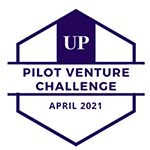 The 2021 Pilot Venture Challenge, UP’s premier invention, business and social venture competition hosted by the Franz Center for Leadership, Entrepreneurship and Innovation, is now accepting applications from students across all majors and disciplines. Pilot Venture Challenge will again be held virtually on Saturday, April 17 and Saturday, April 24.
The 2021 Pilot Venture Challenge, UP’s premier invention, business and social venture competition hosted by the Franz Center for Leadership, Entrepreneurship and Innovation, is now accepting applications from students across all majors and disciplines. Pilot Venture Challenge will again be held virtually on Saturday, April 17 and Saturday, April 24.
To help students learn how to register, get help, prepare and participate there will be a virtual Informational Meeting on Tuesday, March 9 from 4 p.m. – 5 p.m. To learn more about the Informational Meeting and the Pilot Venture Challenge, watch the Pilot Venture Challenge promotion video, and visit the Pilot Venture Challenge webpage.
For questions, contact Kay Molkentin, business, at molkenti@up.edu.
Saint John’s Bible Moment of Beauty: David Anthology
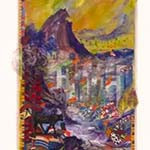 This week’s moment of beauty with The Saint John’s Bible is actually a detail from the sweeping David Anthology illumination, which covers two enormous pages in the Book of Kings. The music for this 90-second video was provided by clarinetist Jade Ward ’22.
This week’s moment of beauty with The Saint John’s Bible is actually a detail from the sweeping David Anthology illumination, which covers two enormous pages in the Book of Kings. The music for this 90-second video was provided by clarinetist Jade Ward ’22.
Displacement and (In)Justice in Portland Roundtable, Feb. 18
 To mark this year’s theme, “Displacement and Justice,” the Public Research Fellows has invited local community leaders from the Confederated Tribes of Warm Springs, the Rosewood Initiative, Unite Oregon, Division Midway Alliance, and Living Cully to participate in a Roundtable, Thursday, Feb. 18, at 5 p.m.
To mark this year’s theme, “Displacement and Justice,” the Public Research Fellows has invited local community leaders from the Confederated Tribes of Warm Springs, the Rosewood Initiative, Unite Oregon, Division Midway Alliance, and Living Cully to participate in a Roundtable, Thursday, Feb. 18, at 5 p.m.
Plan to join us for this important conversation, moderated by Dr. Lara-Zuzan Golesorkhi, via this Zoom link. Please share widely among colleagues, friends, and students: all within and outside the UP community are welcome!
Learning Commons: Group Work Lab is Open
 The Group Work Lab, housed in UP’s Learning Commons, is open and ready to assist groups of students—whether for class projects or campus groups hoping to reorganize and refocus their work. Students can book an appointment for their group through the Bookings Scheduler to meet with a Group Work Lab consultant, both of whom have taken CST 332 (Collaborative Group Leadership) and have completed trainings around tutoring and facilitating group work.
The Group Work Lab, housed in UP’s Learning Commons, is open and ready to assist groups of students—whether for class projects or campus groups hoping to reorganize and refocus their work. Students can book an appointment for their group through the Bookings Scheduler to meet with a Group Work Lab consultant, both of whom have taken CST 332 (Collaborative Group Leadership) and have completed trainings around tutoring and facilitating group work.
Faculty, please consider encouraging your students to utilize the Group Work Lab’s services if you have any group work or group projects built into your syllabi. Our consultants are prepared to assist students during any stage of their project but are especially equipped to provide support during the early stages of planning and team building. Some professors in the past have required groups meet with a consultant, and others have offered extra credit to groups who visit the Lab.
If you are an advisor of a student group on campus, you can also consider recommending that members of the group make an appointment for the Group Work Lab, as our consultants can provide information about role definition, workload management, crafting a deliverable timeline, and how to effectively frame the issue at hand.
We are also in the final stages of updating our website to include useful information for groups to reference around virtual etiquette for remote meetings and work, role definition within groups, and Appreciative Inquiry, a model that promotes change within organization and groups through positive framing and focusing on the strengths of group members.
If you have any questions about the Group Work Lab or helpful models to utilize for group work, feel free to reach out to Dr. Natalie Nelson-Marsh (nelsonma@up.edu), communication studies, as she coordinates the GWL alongside Jeffrey White (white@up.edu). For a peer tutor’s perspective, feel free to reach out to Group Work Lab consultant Sophie Downing (downing21@up.edu) for any assistance around structuring group meetings/resources around your unique assigned projects or group work.
We hope to work with you and your students soon!
TLC Teaching Tip of the Week: Finding New York Times Articles
 Do your students need to access current newspaper articles from the New York Times? The library subscribes to a New York Times database that provides full text articles from 1980 through today. These articles are text-only; images are not included.
Do your students need to access current newspaper articles from the New York Times? The library subscribes to a New York Times database that provides full text articles from 1980 through today. These articles are text-only; images are not included.
The New York Times database initially connects users to a screen where they can search by topic or keyword. To assist with browsing articles from a specific date, the librarians have created a tutorial describing how to find current issues of the New York Times or Wall Street Journal. This tutorial, and many others, may be accessed from our Tutorials guide.
If you’re interested in older articles, the library also provides access to a historical New York Times database that includes full text (including images) of articles from 1851-2007. Additional resources for finding current and historical newspaper articles may be accessed from our News subject guide.
Please contact reference@up.edu if you have any questions about finding or accessing newspapers through the Clark Library.
Stephanie Salomone selected as Associate Director of Project NExT (New Experiences in Teaching)
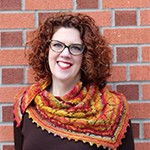 Stephanie Salomone, mathematics, was selected as an Associate Director of Project NExT (New Experiences in Teaching), a national program of the Mathematics Association of America that provides professional development for new faculty in mathematics. Salomone was a Next fellow in 2005 and was offered the opportunity to apply for the associate director position last fall.
Stephanie Salomone, mathematics, was selected as an Associate Director of Project NExT (New Experiences in Teaching), a national program of the Mathematics Association of America that provides professional development for new faculty in mathematics. Salomone was a Next fellow in 2005 and was offered the opportunity to apply for the associate director position last fall.
“This is an opportunity for me to continue leading professional development around pedagogy, including active learning and inquiry-based learning, but on a national scale with people who are new to the profession. It is work that lies in the intersection of teaching, service, and scholarship for me, and I am so thrilled to be a part of it,” Salomone said.